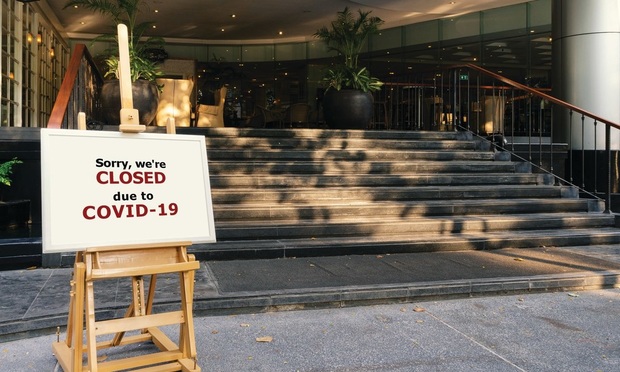 Neither Alabama’s Supreme Court or its appellate courts have ruled on the issue, however, the 11th Circuit determined that the wealth of recent business interruption cases implies that the state’s courts would also favor the insurer. (Credit: gumpapa/stock.adobe.com)
Neither Alabama’s Supreme Court or its appellate courts have ruled on the issue, however, the 11th Circuit determined that the wealth of recent business interruption cases implies that the state’s courts would also favor the insurer. (Credit: gumpapa/stock.adobe.com)The 11th Circuit of the U.S. Court of Appeals joined other courts across the county June 6 in siding with an insurer against a business trying to recover profits lost during COVID-19 shutdowns.
Dukes Clothing LLC sued its insurance provider, The Cincinnati Insurance Company, after Alabama Governor Kay Ivey and the State Health Officer issued several executive orders restricting the operations of “non-essential” businesses, including retail stores. Dukes has locations in Tuscaloosa, Alabama, and Mountain Brook, Alabama; both of which were forced shut down.
Neither Alabama’s Supreme Court or its appellate courts have ruled on the issue, however, the 11th Circuit determined that the wealth of recent business interruption cases implies that the state’s courts would also favor the insurer.
The 11th Circuit has ruled on case law involving businesses recuperating lost pandemic revenue. Senior Judge Frank M. Hull cited the most recent business interruption cases, like the 11th Circuit’s own 2022 decisions in SA Palm Beach LLC v. Certain Underwriters at Lloyd’s London and Henry’s LA Grill v. Allied Ins. Co. of Am. as comparable references.
“Our Court observed that every federal or state appellate court to consider the issue has held that the presence of COVID-19 causes a business to intangible harm, not physical loss or damage,” Hull said. “After review and with the benefit of oral argument, we conclude that Alabama appellate courts would reach the same result.”
In Dukes’ official policy, it states that Cincinnati Insurance pays for the actual loss of “business income” due to necessary “suspension of operations.” However, the suspension must be caused by a “direct loss to property at premises.” The coverage also continues through the period of restoration, beginning with the first day of loss until the premises has been rebuilt or repaired, according to Hull’s opinion.
Among Dukes’ claims include negligence and breach of contract, as well as alleging Cincinnati tried to deny the claim before it was even made. Because there was no Alabama case law on the matter, the magistrate judge granted the insurer’s motion to dismiss.
Counsel for the clothing retailer, Attorney Raymond Glover of Prince, Glover & Hayes, was not available for comment.
The 11th Circuit relied on Alabama law regarding insurance policies. In the 1999 Alabama Supreme Court case State Farm Fire & Cas. Co. v. Slade, it was established that the language of policies is only ambiguous if its provisions are subject to “two or more constructions” or there is reasonable doubt. Therefore, the court interprets Cincinnati’s insurance policy in clear, practical terms.
“Policy language is not rendered ambiguous just because parties disagree about the meaning of a policy provision,” Hull said. “Our duty is to ‘decide what the state courts would hold if faced with the question of whether lost business income resulting from COVID-19 is covered by this all-risk insurance policy.”‘
Although the number of business interruption cases across the country has increased since the height of the pandemic, plaintiffs have had little luck securing victories in court. By interpreting the language of insurance policies as plain and practical, insurers have been given significant leeway in lawsuits.
Just this week, a restaurant in Georgia was denied coverage of pandemic losses on the grounds that there was “no accidental physical damage” to their premises.

